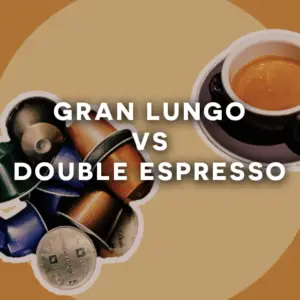
Earl Grey Tea contains more caffeine than other teas, but less than coffee. Earl Grey Tea contains around 50mg of caffeine per cup while black coffee has around 96mg, almost twice as much. Earl Grey Tea’s antioxidants also make caffeine work in a different way than coffee which is perfect for people that want to relax and stay focused at the same time.
Caffeine is a bitter substance that can be found in more than just your tea leaves or coffee beans. Believe it or not, from Kola nuts to Cacao pods, all have different levels of caffeine in them.
But how does Earl Grey Tea’s caffeine compare to coffee’s caffeine?
Let’s find out.
Contents
- 1 How Much Caffeine Is In Earl Grey Tea and Coffee?
- 2 Is Tea’s Caffeine Different From Coffee’s Caffeine?
- 3 Caffeine Content in Other Teas and Drinks
- 4 What Influences The Caffeine Content in Tea?
- 5 What’s a Safe Amount of Caffeine To Consume?
- 6 Earl Grey Tea VS Coffee: Which is Better For Your Health?
- 7 The Bottom Line
How Much Caffeine Is In Earl Grey Tea and Coffee?
Let’s look closer at comparing caffeine levels in Earl Grey Tea and Coffee.
Earl Grey Tea
Earl Grey Tea is a flavored tea is a black tea with bergamot oil, which comes from the bergamot orange, a small citrus fruit. The orange is what gives the tea this citrusy and unique taste.
In general, black tea is the most popular type of tea and also the most caffeine-packed one. This is followed by oolong tea, green tea, white tea, and purple tea.
A serving size of 1 cup (237ml) contains around 40mg to 120mg of caffeine and depends heavily on how it’s prepared. But usually, it sits around 50mg per cup.
For example, if you steep your tea for a longer period of time or you use more tea leaves then it will increase the caffeine content. But of course, if you use fewer tea leaves or steep the tea for a shorter amount of time it will result in lower caffeine levels.
Regular Black Coffee
We all know coffee, a caffeine-packed beverage that punches you in the face when you drink it.
Coffee is the 2nd most popular drink in the world and its caffeine content ranges between 70mg to 140mg, with an average of around 96mg per cup usually.
Caffeine in coffee depends heavily on the way it’s prepared as well. Make sure you weigh your beans or measure your scoops as you can easily exceed the caffeine content range.
Fun fact: Decaf coffee actually contains caffeine as well, but a very small amount.
Is Tea’s Caffeine Different From Coffee’s Caffeine?
Caffeine stays the same in general, but it is the other antioxidants in tea that make it different than coffee.
- Coffee contains not only a high amount of caffeine, but a lower amount of tannins, as well as a few different chemicals that all contribute to a stimulating effect.
- Black Tea contains around half the caffeine of coffee, but a lot more tannins, a low dose but active dose of theanine, some EGCG (Epigallocatechin Gallate), and a few other actives.
- Green Tea contains half the caffeine of black tea, so a quarter of coffee. It contains a little theanine and more tannins than coffee, as well as a lot of EGCG, and a lot of other actives
Theanine in tea interacts with caffeine in a complex way, typically reducing the ‘jumpy’ and ‘jittery’ effect, and increasing the ‘focused’, ‘happier’, and ‘relaxed’ effects of caffeine.
EGCG has a calming effect on the brain, and possibly antidepressant effects, also increasing neurogenesis.
All 3 of these drinks have other relevant chemicals, and the effects are not only linked to specific chemicals but how the doses work together. The chemicals all work together in a way that is far beyond just regular caffeine.
Caffeine Content in Other Teas and Drinks
Caffeine can be found in a lot of other drinks such as sodas and energy drinks, and even though these drinks contain a lot of caffeine they also have a massive amount of sugar.
These kinds of drinks have no health benefits, unlike tea and coffee.
Black Tea: Black tea is not only one of the most popular teas, but it’s also the most caffeine-packed one. 1 cup of black tea contains around 47mg of caffeine but can go up to 90mg.
Green Tea: Green tea contains around 20 to 45mg of caffeine per cup which is far less than black tea.
White Tea: White teas’ caffeine content can range between 6 to 60mg of caffeine per cup which can either be lower or higher than green tea.
Espresso: An Espresso shot has around 63mg of caffeine, be aware that an espresso serving size is actually very small.
What Influences The Caffeine Content in Tea?
Even though tea’s caffeine can fluctuate, there are quite a few reasons why that is.
- Tea Varietal: All tea is produced from the same plant but the tea plant (camellia sinensis) has 2 main varietals: camellia sinensis var. sinensis, which is grown mainly in China, and camellia sinensis var. assamica, which is grown mainly in India. Teas produced from the assamica varietal tend to have higher caffeine levels.
- Harvest Time: Teas that are harvested in the Spring tend to have higher caffeine levels than teas harvested later in the year.
- Growing Process: Some growing practices can also influence the teas’ caffeine content. Shading tea plants for several weeks before harvest drastically increases the caffeine content.
- Processing Method: Caffeine levels also vary a lot on how the tea is processed. Finely ground teas dramatically increase the caffeine content.
- Steep Time: This principle is simple, the longer you steep your tea, the higher the caffeine content will be.
- Water Temperature: Just as with coffee, the water temperature to extract caffeine from tea is extremely important. Tea that is brewed with boiling water is usually higher in caffeine. If you use cooler water then it tends to extract less caffeine.
- Amount of Tea Leaves: Of course, the more leaves added, the more caffeine. If you like your tea strong then you can always add more tea leaves to your tea.
Remember that these are just general guidelines, the actual caffeine content in your cup of tea can vary widely from tea to tea.
What’s a Safe Amount of Caffeine To Consume?
Either if you like to drink tea or coffee, or both. It’s important to know what amount of caffeine is considered safe as too much caffeine can lead to a caffeine overdose which can give you breathing troubles, seizures, diarrhea, dizziness, fever, and even hallucinations.
According to the FDA, the amount of caffeine intake for a healthy adult is up to 400mg per day, while for pregnant women it’s only 200mg. So, keep this in mind if your drink a few cups every day.
This means 4 cups of coffee (of around 100mg caffeine per cup) or 8 cups of Early Grey Tea (with an average of 50mg caffeine per cup) will push you over the daily limit. Now, I want you to take this with a grain of salt as these are average measurements, and your cup of earl grey tea or coffee might have way more or less caffeine in it.
Earl Grey Tea VS Coffee: Which is Better For Your Health?
As I’ve said earlier, Earl Grey Tea has a lot more antioxidants than coffee, which work in a complex way with caffeine. This makes Earl Grey Tea healthier than coffee.
Here’s how caffeine from Earl Grey Tea compares to Coffee:
Stress
Earl Grey Tea relaxes and soothes the body almost instantly. It has a stress-relieving effect whilst simultaneously providing the same clarity and focus as coffee.
People with anxiety issues tend to make their anxiety worse when they consume caffeine. But theanine, a substance found in tea helps you relax, and thus eliminates the effect of caffeine that makes you anxious.
Immune System
Because of the antioxidants in tea and the antibacterial bergamot in Earl Grey, it can massively improve your immune system.
Coffee has some antioxidants as well but they are not nearly as powerful as in tea, mainly because coffee is heavily focused on caffeine, while in tea the other antioxidants work together in a complex and unique way that is beneficial to the consumer.
Metabolism
Antioxidants in black tea and coffee boost your metabolism and thus are great drinks for people that want to lose weight.
Caffeine stimulates the body, including the fat-burning component, which surely comes in handy!
If you’re trying to lose weight, then this is not going to be the magic pill, but it can push you in the right direction. A healthy diet and lifestyle are what’s going to make a real difference.
Energy
Caffeine gives us a massive energy boost, and even though I love a cup of joe, I do prefer the energy boost that tea gives me.
The energy boost you get from coffee is a quick kick, meanwhile, tea gives you a stabler boost of energy for a longer period as well.
Therefore, tea is the healthier and smarter option.
Coffee might make your energy levels crash once the caffeine high fades away, which isn’t very nice honestly as it makes me quite tired afterward.
The Bottom Line
Coffee is a lot higher in caffeine than Earl Grey Tea but it’s clear that Earl Grey Tea has a lot more beneficial antioxidants and health benefits than coffee.
It’s also important to note that Earl Grey Tea’s caffeine tends to be more relaxing, stabler, and longer, rather than coffee’s quick kick and hard crash afterward.
At the end of the day, it all depends on what you prefer the most, for some that’s being hyper-focused and jumpy for a short amount of time, while for others it’s being in a longer focused state while feeling relaxed and energetic.







